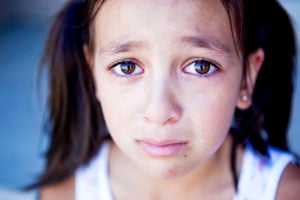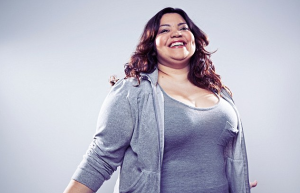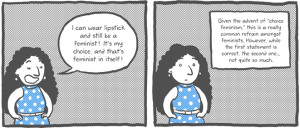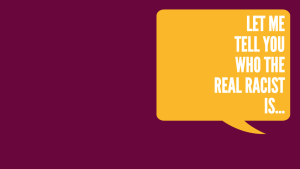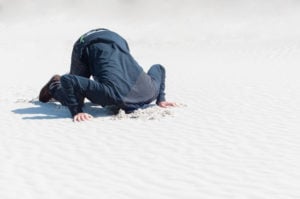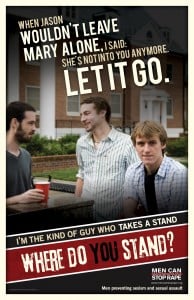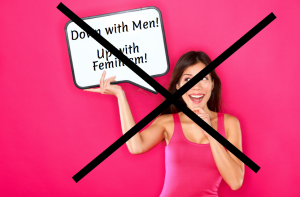Hi, welcome to Feminist Fridays, a series where we explore the social, the political and the media from a feminist and inter-sectional perspective and use a lot of F words.
Today we’re going to talk about a Rolling Stone article that they published about a couple months ago entitled, “A Rape on Campus”. As you can expect, it detailed the brutal gang rape of a freshman student, using the pseudonym “Jackie”, by multiple frat members at the University of Virginia.
First off, I think it’s a good thing that Rolling Stone attempted to shed light on the issue of campus rape, particularly rape at frat parties, especially schools like UVA that value tradition and have motive to cover up sexual assault to protect their school’s legacy.
But the way that Rolling Stone went about this article was pretty fucking shitty. Rolling Stone didn’t do any fact checking. They didn’t verify to see if any fraternities had a party on the night that Jackie described in the story. Also, the orchestrator of the gang rape that was named in the article under a pseudonym wasn’t actually a member of the fraternity mentioned.
Rolling Stone received a lot criticisms about the discrepancies in their story. It’s discrepancies that were important and deserved attention, but the response to these discrepancies was extremely harmful.
Rolling Stone retracted their article about a month after it was published stating, “In the face of new information, there now appear to be discrepancies in Jackie’s account and we have come to the conclusion that our trust in her was misplaced. We were trying to be sensitive to the unfair shame and humiliation many women feel after a sexual assault and now regret the decision to not contact the alleged assaulters to get their account.”
Basically, instead of taking responsibility for their lack of due diligence and fact checking on their part, Rolling Stone blamed their poor journalism on Jackie.
First off, I think it’s really important to get both sides of the story but the frat members eventual denial of the allegations against them doesn’t necessarily invalidate Jackie’s story.
Secondly, I think it’s a good thing to honor victim’s requests in cases of rape and sexual assault. Rape victims are never obligated to speak out against their rapists, publicly or in a court of law. It’s extremely traumatic for survivors to have to relive these experiences and then have to retell them to a Grand Jury or even to a reporter.
Also, the negative backlash that rape victims often get from the general public is enough reason for them to be wary of reporting. Since the story has been published, there have been reports of Jackie apparently being pressured by the reporter into having her story published.
In this case, not including the alleged perpetrators’ testimonies isn’t so much about respecting the victim, but a half-assed attempt to keep Jackie from withdrawing her account.
This is very clearly a story that should not have been published in the first place. I think the biggest issue with this story is that instead of bringing light to the serious issues of sexual assault on college campuses, it re-framed the narrative entirely.
Instead of making it into a narrative about the horrible reality of campus rape, it made it into a discussion about the trustworthiness of the victim. This is extremely harmful to the survivors of sexual assault because it further undermines legitimacy of rape victims who report. Rape is already super under-reported and by villainizing the women who speak out about it, we make it even harder for victims.
The Rolling Stone article only promotes the stereotype that women cry “Rape!” for attention despite false reports being seemingly statistically low. The FBI reports that about eight percent of rapes are falsely reported but this is a flawed statistic because it counts cases of women recanting their testimonies as false, which can be attributed to a number of reasons such as the ones previously mentioned.
It also equates the percentage of reports found false by investigators to the percentage of reports that were actually false. This also doesn’t even begin to cover the amount of rapists that never end of being prosecuted because of a lack of evidence.
Another important thing to note about the discrepancies in Jackie’s story is that she’s potentially a victim of trauma. According to the National Institute of Justice, victims of trauma often have trouble organizing the timeline and the details about their attack. This is why we so often see these discrepancies when victims of trauma report and it ends up being interpreted as these victims being untrustworthy.
This is also why the Rolling Stone article is so harmful. By stereotyping assault victims as attention seeking liars who want to get back at people, we discourage victims from reporting out of fear that they won’t be believed or they’ll be shamed and we play right into the hands of rapists.
The issue here isn’t even so much if Jackie’s story was true or it was false, the issue is that it’s going to have a huge impact on the way the media and the general public view all stories of rape in the future.
This is how a story originally intended to sympathize with victims and bring light to the issue of sexual assault is actually doing the exact opposite and making it harder for victims of rape everywhere.
For next week’s Feminist Fridays, I’m going to be doing a Q&A which I want to start doing every couple months. Please send me questions to answer in relation to feminist issues, racism, social justice, whatever you think is relevant.
Also, Feminist Fridays has a Facebook page now which I’m going to link below. It would be cool if you wanted to like it for a new videos and updates and information in general.






